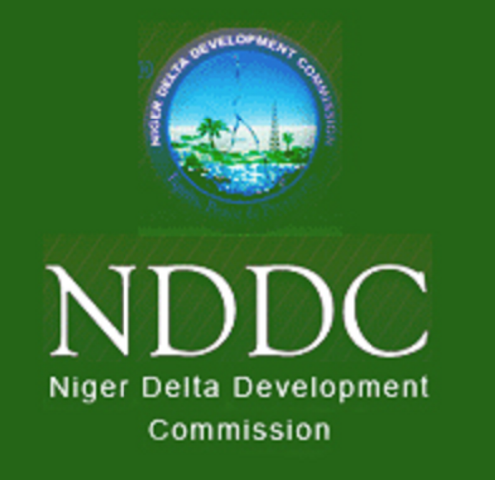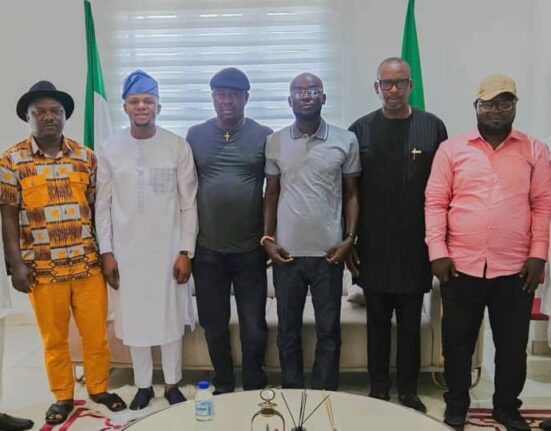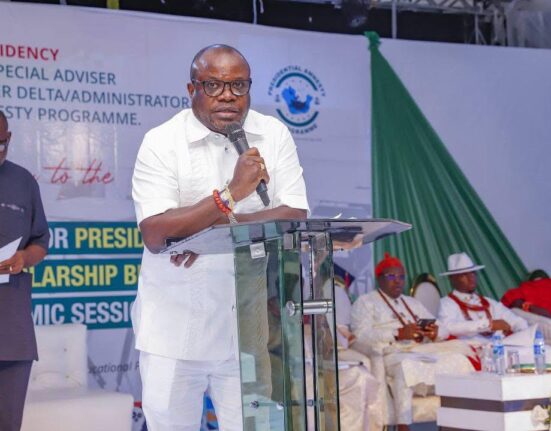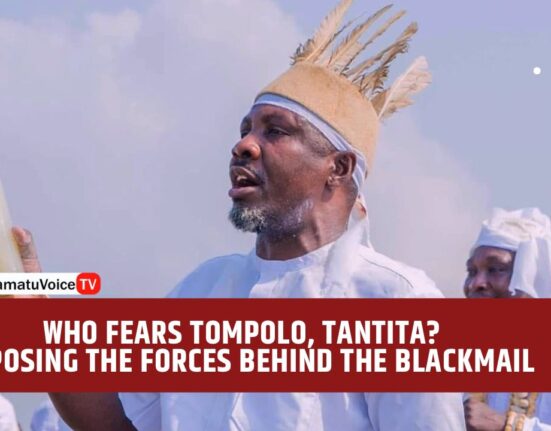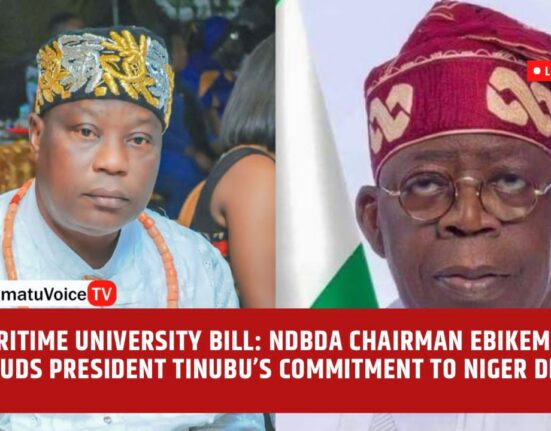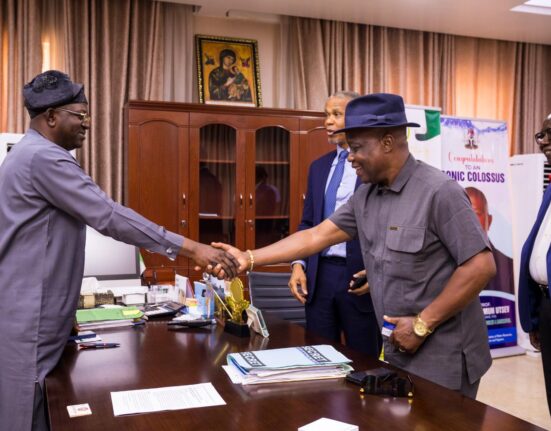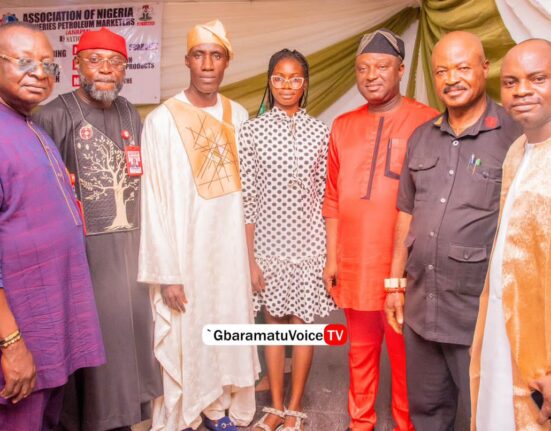By Norrison Quakers, SAN
The ongoing probe of the Interim Management of the Niger Delta Development Commission has opened a can of worms in the operations of the Niger Delta Development Commission, and the norms prevalent in Nigeria as a whole. The manifestation of economic and financial crime revealed by the ongoing probe, can be comfortably described as brazen. The sincerity of purpose of the Government of Nigeria under the leadership of President Muhammadu Buhari to counter fraud and corruption embedded in the fabric of all facets of our polity like linings, is once again put to the test in the wake of allegations and counter-allegations emanating from the Minister of Niger Delta Affairs, Senator Godswill Akpabio, former Managing Director of the Niger Delta Development Commission (NDDC) Interim Management Committee, Joy Nunieh, the Interim Managing Director- Kemebradikumo Pondeh and his management, not forgetting to add the alleged involvement of Legislators as parties to the sleaze.
Funding of the NDDC
The woes of the South-South region of Nigeria, have been a subject of debate since the new millennium. In a desperate bid to provide a lasting solution to the socio-economic difficulties of the Niger Delta Region, such as- militancy, underdevelopment, environmental pollution, amongst others, the Niger Delta Development Commission was established in the year 2000, with the mission of facilitating the rapid, even and sustainable development of the Niger Delta to an enviable status of a region that is economically prosperous. Whilst, Section 14(2)(a) of the NDDC Act obligates the Federal Government to remit to the NDDC a sum equivalent to 15% of the total monthly statutory allocation due to the Niger Delta Development Commission, Sections 14(2)(b)and (c) also provide for the remittance to the Niger Delta Development Commission of 3% of the total annual budget of oil producing and gas processing companies operating in the Niger Delta area, and 50% of monies due to NDDC member States from the ecological fund. An Amendment Bill was later conceptualised to correct some perceived lapses in the Niger Delta Development Commission (Establishment, Etc.) Act, 2000 (NDDC Act) in the wake of the Court of Appeal’s decision in Niger Delta Development Commission v Nigeria Liquefied National Gas Limited. The poser is – where has the money gone?
The Role of the Ministry of Niger Delta Affairs
Of note, the previous administration led by His Excellency Goodluck Jonathan, also played a role in alleviating the suffering of the people of Niger Delta. Regrettably, going by the drama unfolding in the NDDC, we can conclude that we are back to where we began this tortuous journey to liberate the people of Niger Delta. The tying of NDDC to the string of the Ministry of Niger Delta Affairs, as opposed to allowing same operate independently has equally contributed to its inefficiency, due to abuse by power brokers in the Ministry of Niger Delta Affairs.
Previously, it was believed in many quarters that the problem of the Niger Delta region is attributable to the activities of foreign companies destroying the oil rich environment simpliciter, hence, concerted efforts were focused on securing restitution and compensation, with additional funds provided from Government and NGOs to change the fortune of the region; albeit, the epiphany- the insect troubling the fresh vegetable of Niger Delta is right within. And there lies the dilemma; if Government, NGOs and the world at large heeded to the cries of the people of Niger Delta by providing grants and reliefs, yet those at the helm of affairs who are to represent the interest of their people- the downtrodden, are living large on the peasants in their region, it strikes the root of our conscience as a nation, and calls for national mourning indeed.
It is surprising that these revelations were concealed over the years, or better still, do we assume that stakeholders in the struggle for the emancipation of the Niger Delta, are ignorant of these gross infractions? Whilst the populace are groaning over massive job loss, dwindling economic outlook amongst others, apparently, few are gloating, having benefitted from the plight of the downtrodden in the oil rich region. Well, the story is one that has different chapters like Agary’s Yellow-Yellow and Habila’s Oil on Water, and we are simply in the preliminary chapters.
At this stage, evidently, the probe of the Niger Delta Development Commission transcends the Constitutional oversight functions of the National Assembly since criminal infractions are being unraveled, coupled with the fact that some weighty allegations have been levelled against some members of the legislative arm; the National Assembly cannot be a judge in its own affairs.
Succinctly, this is an affirmation of the need for the management of information systems related to economic crime, the determination of financial losses incurred by fraud and corruption, which is reposed in criminal investigatory bodies under extant legislation to meet the requirements of the global Financial Action Task Force (FATF) regarding financial crimes.
ICPC, EFCC and Legislation
Both the ICPC and the EFCC have powers not only to investigate, but also to prosecute. The ICPC was inaugurated on September 29th, 2000 by the Nigerian erstwhile President, Chief Olusegun Obasanjo. The EFCC was created by law in December 2002, and began operating in April 2003. Section 12 of the EFCC Act provides for the establishment of special units of the Commission, including the Legal and Prosecution Unit. In a similar manner, Section 6(a) of the Independent Corrupt Practices and Other Related Offences Act 2000, also confers investigative and prosecutorial powers on the ICPC.
Happily, the various Acts setting out disclosure requirements of agencies of Government are applicable to the NDDC; with penalties for failure to keep or disclose accurate financial records. For instance, Sections 59 and 64 of the Financial Reporting Council of Nigeria Act and Section 10 of the Money Laundering (Prohibition) Act, exemplify need for financial record keeping. Thus, all those involved in this dastardly act at the NDDC must be held accountable, by requiring them to submit audited financial reports; the independent variable (forensic accounting) should be employed to unravel the financial crimes (the dependent variable) in the Commission.
Suggestions as to Steps to take
The Economic and Financial Crimes Commission (EFCC) has power to prosecute financial crimes under Section 12 of the EFCC Act. By virtue of Section 7 of the Act, the EFCC can also prosecute under other legislation. More so, the powers of search and compelling disclosure is equally vested in EFCC (Section 25, EFCC Act) and ICPC (Section 36, ICPC Act). EFCC equally has the power to conduct interviews and the probe of NDDC; with due recourse to Sections 34 to 36 of the Constitution of Nigeria 1999 (as amended) providing for safeguards in conducting investigations. Hence, after due process of criminal investigation has been complied with by the EFCC, it can file charges in court accordingly, pursuant to Section 6 of the EFCC Act.
So far, investigations have revealed the likelihood of infractions, which when thoroughly investigated, can further confirm fraudulent receipt of property, dealing with property acquired through gratification, bribery of a public officer, accepting gratification, using a public office or position for gratification, falsification of documents, bribery by giving assistance in regard to contracts, and not forgetting that related to the alleged secret oath taking, to activate the intervention of the neutral criminal agencies saddled with investigating misappropriation of assets, bribery and corruption, procurement fraud, financial accounts misstatements, accounting procedure breach, underreporting of line costs, and inflation of expenditure amongst others.
The world is definitely watching how this administration will nip this probe in the bud, particularly since there are a number of international anti-corruption conventions that apply in Nigeria, including the African Union Convention on Preventing and Combatting Corruption adopted by the African Union in 2003, United Nations Convention Against Corruption (UNCAC), signed on 9 December, 2003 and ratified on 14 December, 2004, and the African Union Convention on Combatting and Preventing Corruption, signed on 16 December, 2003 and ratified on 26 September, 2006.
Further, there is no better time to encourage whistle blowing to unravel the mystery in the operations of the NDDC than now; whistleblowers are protected in Nigeria under the Whistle-blowers Act, Federal Ministry of Finance policy on whistleblowing, the Financial Reporting Council of Nigeria’s Code of Conduct, amongst others. This has become urgent, to prevent this probe from going the way of some previous probes.
Banters are already being exchanged between the ruling All Progressives Congress (APC) and the opposition- Peoples Democratic Party (PDP), in their desperation to score cheap political points over a matter of looting of humongous sums. Nonetheless, it needs to be reiterated that a litmus test for injustice in combating corruption, is- selective prosecution.
Flowing from the above, in acknowledging that corruption undermines accountability and transparency in the management of public affairs as well as socio economic development in the country, and to avoid executive cum parliamentary mischievous manoeuvres, it is expedient that the parties in the core of the probe of the NDDC be suspended, to avoid interference whatsoever with investigations.
Nigeria’s President Muhammadu Buhari, was endorsed by African leaders to champion the African Union theme of the year for 2018, ‘Winning the Fight against Corruption: A Sustainable Path to Africa’s Transformation’, which has made Nigeria a frontier in bringing corruption to its knees in our motherland. We definitely, cannot afford to disappoint the continent.
Norrison I. Quakers, SAN, Constitutional Lawyer and Human Rights Activist, Lagos.
Support Quality Journalism in the Niger Delta Region
Join us in our mission to bring development journalism, cultural preservation, and environmental awareness to the forefront. Your contribution makes a difference in the lives of the people of the Niger Delta. Donate today and be a part of the change!


